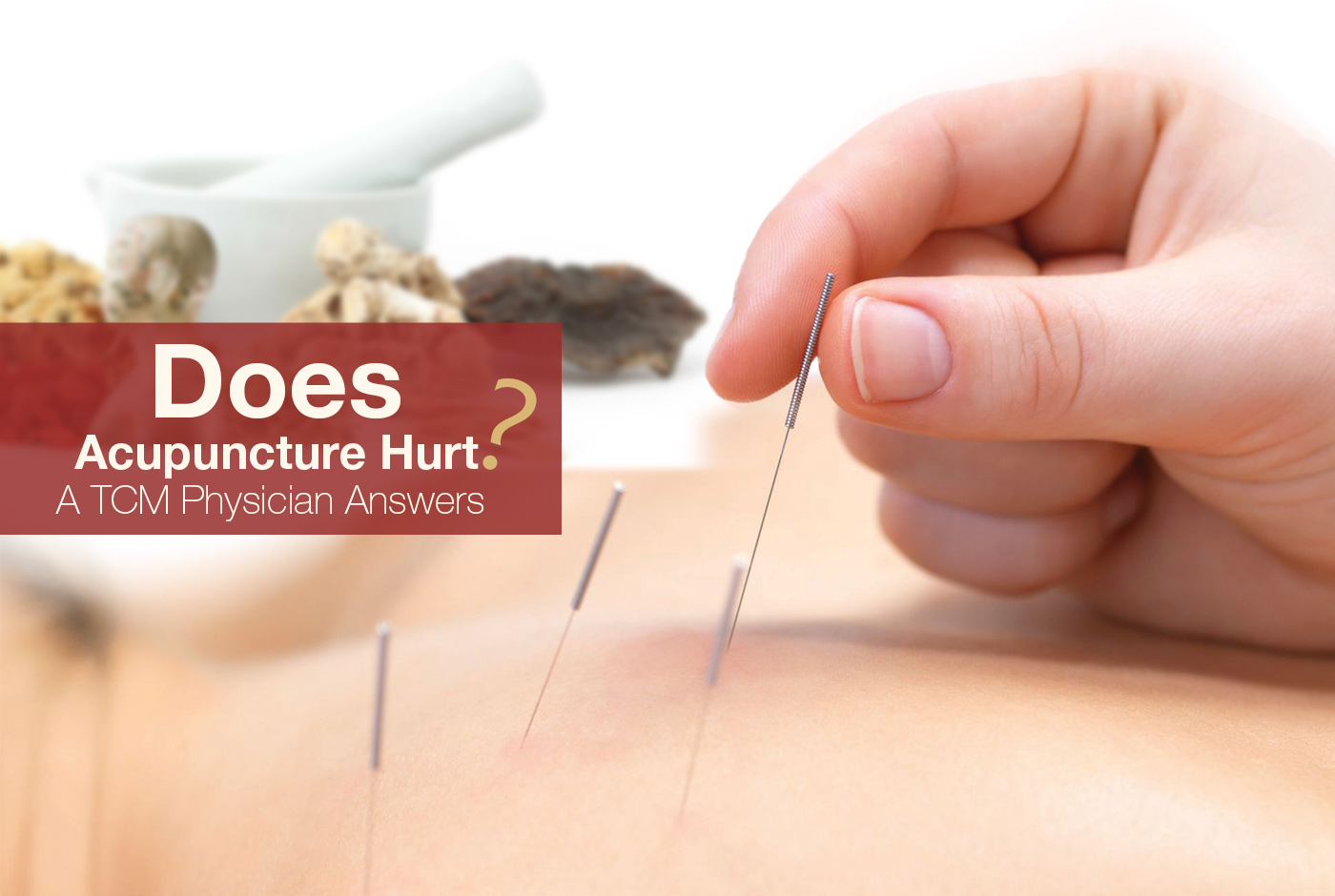Does Acupuncture Hurt? A TCM Physician Answers This Question

Does acupuncture hurt?
This is a common question asked by my patients when I recommend it as a course of treatment. For many, the word “acupuncture” probably conjures up a daunting image of many needles being inserted into various parts of the body.
But how does it actually work, and how does inserting needles into the body help to relieve discomfort?
Before we get to these questions, let us first explore the concept of Meridians and Acupoints.
Understanding the Theory Behind Acupuncture
Meridians (经络) are pathways in our bodies along which qi (“energy”) and blood (“nutrients”) flow. These invisible pathways are neither blood vessels nor nerves, although some of their routes do run close to the course of some blood vessels and nerves.
Think of meridians as roads, and qi and blood as cars. Under normal circumstances, these cars drive freely through the roads, enabling normal physiological function. If there’s stagnation at a portion of a meridian, a “traffic jam” arises, and the blood and qi won’t be able to flow properly. As a result, you may feel pain or discomfort.
Acupuncture is then used to alleviate the traffic jams by inserting needles into acupoints (穴位) and stimulating them. These “openings”, located along the meridians near the surface of the body, are where acupuncture needles are inserted.
When stimulating particular acupoints, we can adjust and improve the overall flow of qi and blood along the entire meridian, thereby relieving pain and discomfort. This is the therapeutic principle behind acupuncture.
How Much Does Acupuncture Hurt?
Now, for the million-dollar question: Does acupuncture hurt?
Although acupuncture may look painful, it is actually not so. Needles used in modern-day acupuncture are extremely fine, ranging from 0.12 mm to 0.35 mm in diameter. They are much thinner than injection needles, and therefore cause minimal discomfort during insertion.
That being said, some sensation is to be experienced when acupoints are stimulated. It is definitely not the kind of pain which is experienced during injection. Some points may have a heavy and dull sensation, while others feel more numb and tingly, much like pins and needles. These sensations are necessary and in fact desirable. It tells us that the acupoint is stimulated, qi and blood is being directed to that particular area, stagnation along the meridian is relieved, and the therapeutic effect of acupuncture is achieved.
As acupuncture involves inserting needles through the skin; if you’re concerned about infection, rest assured that skin surface are sterilized with alcohol prior to treatment. Sterile, single-use disposable needles are also used in modern-day acupuncture to minimise contamination.
While acupuncture as a course of treatment is effective most notably in pain management; I also have patients coming to me for their weight management, stroke rehabilitation, and fertility needs.
If you’re thinking of using acupuncture to boost your health but are held back by fears of pain, why not take a leap of faith and go for it? You may be surprised at how relatively painless it is.
Written by Physician Tan Weii Zhu, TCM Physician, Raffles Chinese Medicine



















